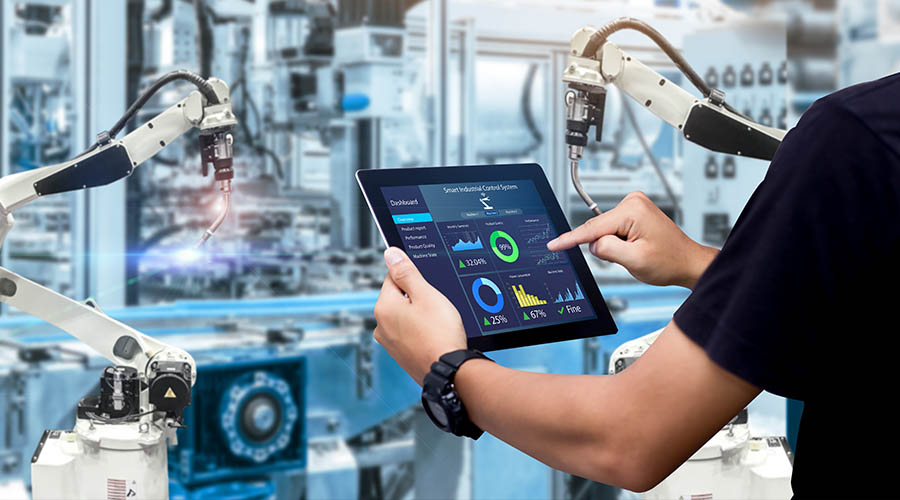Digital Technologies are transforming industry, globally

In today’s business world, there are massive transformations happening across supply chains as a result of digital technology adoption. Digital transformation is forcing companies to change their business models, processes and operational activities and adapt to the new market reality. And what is driving this change? The customer.
With innovation being at the heart of digital transformation, the recent ISCF Manufacturing Made Smarter Supply Chain workshop organised by KTN in partnership with Innovate UK explored some key challenges and opportunities for digital technologies to escalate customer-led innovation across multiple industries to improve productivity.
Customer Experience through data
Your customer is always connected. And as a result of this your business must embrace technology to deliver an unmatched customer experience and put the customer at the centre of your organisation’s supply chain. To do this you need to need to understand the added value for the customer whether that is B2B orB2C through the data you collect and analyse. Your business needs to be clear about the value proposition and be able to analyse the data in a way that enables your organisation to create a personalised offer that explains the added value to therefore to engage the customer.
Once we start to generate consumer data at a granular level we can use this to develop predictive analysis which will give an early warnings of when things could potentially go wrong and also to feedback into the product design process.
Learning across groups of companies and organisations
Companies have greater impact when they collaborate. A great example of this was the disparate range of businesses across many sectors who came together quickly to create solutions for the ventilator challenge. Single businesses find it hard to instigate change. Collaborating with partners across different sectors and industries hase a bigger impact and really drives change. There are some challenges though;
- Need for common language, shared values and standards
- Pace of change/adoption across the UK. For example, the UK is way behind other countries such as Germany in terms of adoption of Industry 4.0.
- Having a shared understanding across organisations
The introduction of good online digital collaboration tools can help speed up and streamline adoption and help shape and standardise processes.
Scaling Digital Technologies
Organisations should aim to have a digital supply chain strategy. Too often we get caught up in the excitement of the smart new technology and forget about the digital supply chain strategy. There should be consideration around the portfolio of technology investments necessary to transform an organisation and also those which form the backbone of the organisation.
For example, GKN is scaling their digital technology strategy. They are part of a wider consortia that is putting together an architecture for Industry 4.0 across the world. Each of their 52 sites has a different architecture, so they are putting a layer over the top so supply chains can integrate with them. This will help improve the value from the supply chain and streamline supply chain innovation.
The key to scaling these digital technologies is doing it in partnership with others. Waiting on others to catch up it can take forever so it is better to collaborate to escalate scale up.
Role of Visualisation of supply chains
There are two requirements for data visualisation;
- Strategic review of supply chain footprint to help analyse and segment supply chains .
- Control Tower / Watch Tower. Being able to watch and control your supply chains can have real world benefits. During COVID there were multiple failures for organisations across limited material and parts supply. Companies need to have access to early signals to ensure they can respond quickly.
There are opportunities to use blockchain technologies to support the challenges around provenance. However there are still questions around how to best develop blockchain across supply chains in terms of interating with existing technology systems such as ERP. To make blockchain work, organisations need to adopt a culture of sharing. Blockchains also need effective governance mechanisms to provide long term benefits. .
The funding available via the ISCF Manufacturing Made Smarter competition could be used to tackle some or all of these challenges. Businesses should consider where they could innovate to make the biggest impact; developing more informed customer data analytics, collaboration in groups, scaling digital technologies or data visualisation across supply chains.
Find out more about applying for the Manufacturing Made Smarter competition here.
Find out about the opportunities for digital technology supply chains to transform manufacturing here.

